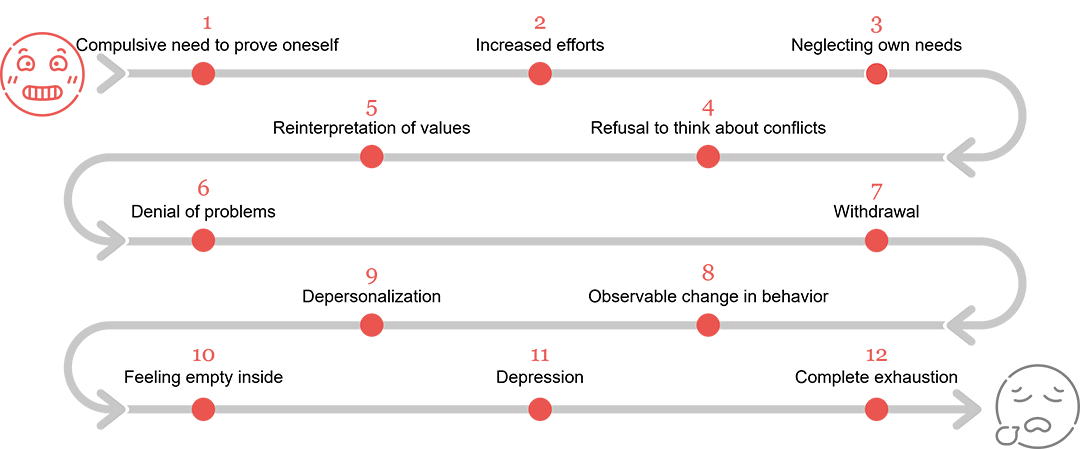Resilience
- How can my leaders and employees deal with the challenges of the times and use their resilience wisely?
- How do I, as a leader, stay resistant to crises and remain able to act?
- How do we develop a sense of psychological safety in the team?
- As a leader, what are my responsibilities in situations where employees or colleagues are at risk of or have already experienced burnout? What are warning signals?
Life is demanding today, its changes and challenges manifest themselves in society and the economy and are also felt within leadership and teamwork. People and systems react differently: they react in ways that range from reactive behavior, working to rule, withdrawing, or the feeling of being permanently overwhelmed right up to experiencing a significant impact on their mental health in the form of anxiety, lack of energy, and even exhaustion, being overworked, or burnout. In some cases, these effects catch leaders by surprise.
Resilience refers to the resilience of individuals, as well as entire teams, departments, and organisations. Periods of uncertainty and upheaval are also times during which the resilience of individuals and society is put to the test: To what extent can we accept what cannot be changed and make a full commitment wherever we have the opportunity to shape things? Do we stay optimistic even when the going gets tough? Do we have fundamental faith in our own effectiveness? Can we create a meaningful vision of the future that gives us the ability to motivate ourselves and keep our eye on the ball, even or especially in challenging times?
Although the foundation is laid in childhood, resilience can be strengthened and improved throughout a whole lifetime.
Model
Factors of Resilience
- Acceptance
- Realistic optimism
- Positive self-perception
- Belief in self-efficacy
- Mindfulness
- Tolerance for uncertainty
- Solution orientation
- Future orientation
- Willingness to change
During the 5P resilience workshops, awareness is raised for new routines and thought processes, they are reflected upon and practiced. One motto is “Don't believe everything you think” and in the course of the training, old beliefs are questioned, weeded out and replaced with more useful ones. A foundation is laid through knowledge and understanding, in order to then be able to process the gained knowledge and the experiences better and to be able to take away truly new approaches and lessons that make sense for every participant.

Focus of the 5P resilience workshop
While resilience coaching puts the individual person into the spotlight and more openness right from the start will often achieve faster progress, the advantage of group workshops is that everyone can benefit from the whole group’s collective experience and grow together.
The workshop „Resilience und mental health“ specifically aims to help leaders to notice signs of people being overwhelmed and to handle such situations competently – to address them and to offer appropriate support in a timely manner. This also includes recognising the limits of their own abilities (and, for example, using “protective shield” offers).


Abb.: Burnout: 12 phases according to Herbert Freudenberger
Approach
| Resilience training |
2 days, for leaders, employees or as a team Also available as a module in development programs, accompanied by coaching for implementation in your own team if applicable |
| Training on resilience and the mental health of employees | 2 days, for leaders |
| Nuggets on resilience and mental health |
3-hour online workshops for leaders |
| Resilience workshops for teams | 2 days, for teams - working on team resilience and psychological safety within the team |
| Resilience coaching | Resilience coaching based on PSI test with reflection on personal motives and self-regulation competencies |
| "Protective shield" offers in cooperation with a team of psychotherapists | Therapy hours paid by the company for employees and managers, which they can attend anonymously. |
